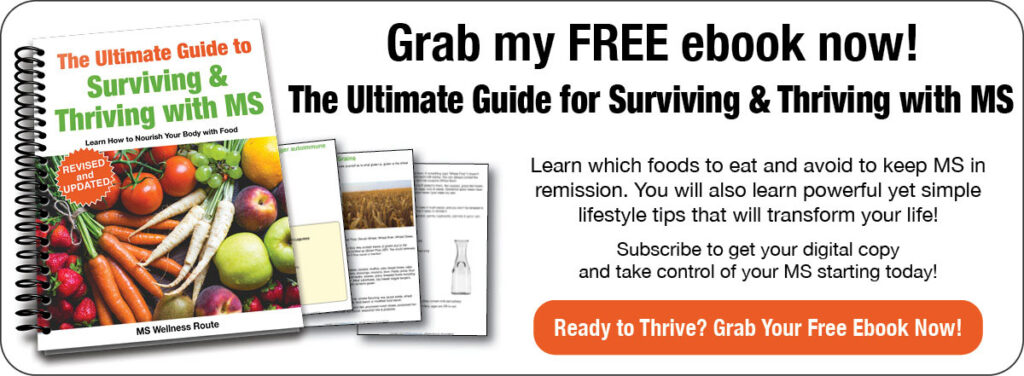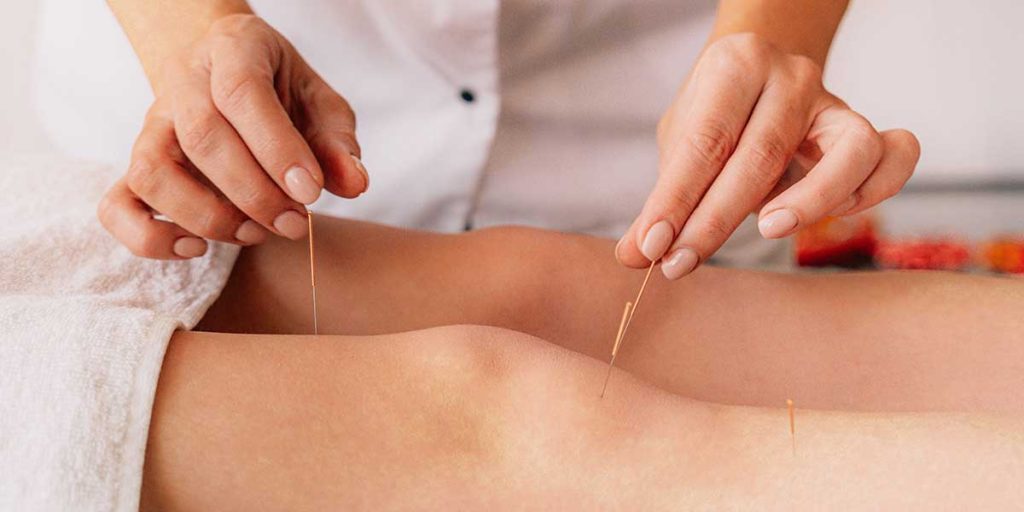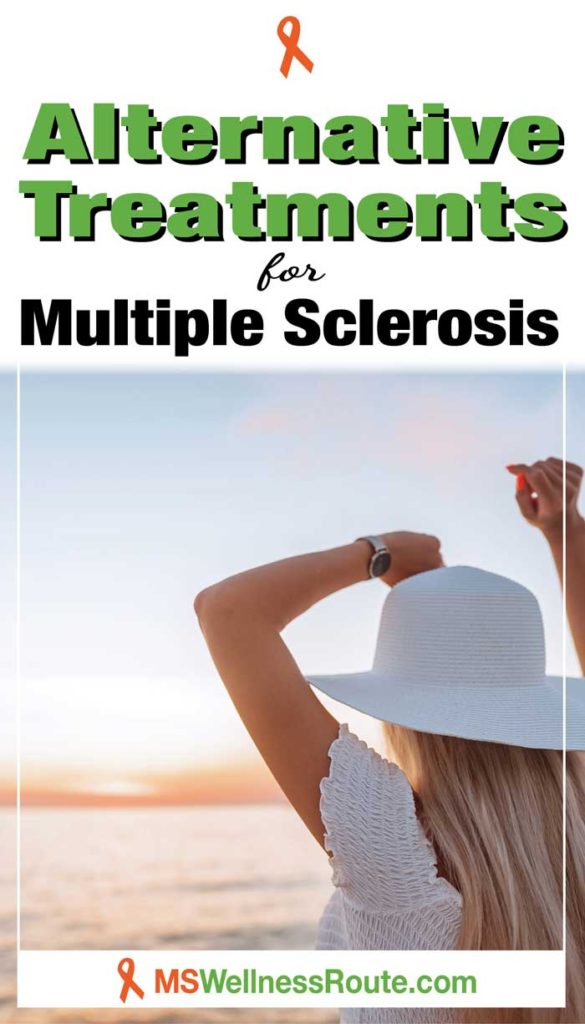Last Updated on November 18, 2023 by Cathy

Multiple sclerosis (MS) is a chronic inflammatory disease. Which affects the central nervous system (CNS). There are many ways to treat MS including pharmaceuticals and alternative treatments. The first disease-modifying treatment (DMT) for MS was Betaseron which came out in 1993.
Today, there are many DMTs but these treatments are unable to stop the progression. Plus, they come with side effects including flu-like symptoms, heart damage, and death. A survey found the majority of MS patients use alternative treatments for their symptoms. They either combine the two or use alternative treatments alone.
Common therapies:
- Cannabis (medical marijuana or CBD oil)
- Diet and dietary supplements such as vitamins, minerals, and herbs
- Mind-body therapies such as acupuncture, massage, and mindfulness
- Exercises such as tension bands, swimming, walking, and yoga
Diet for MS
Eating a healthy diet is extremely important when living with MS. There are many MS diets to choose from but no studies are showing one diet is better than the other. Your best option is to eat an anti-inflammatory diet and adjust it to fit your needs.
It is important to eat the right amounts of nutrients from mostly plant-based foods. Especially eating vegetables. Dr. Terry Wahls, the author of The Wahls Protocol, recommends eating nine cups daily.
Dr. Wahls recommends three cups of vegetables each daily:
- Leafy greens
- Colorful, including one cup of berries
- Cruciferous (sulfur)
Researchers found people with MS have more bad bacteria in their gut than healthy people. Avoiding processed foods and eating a well-balanced diet improves gut health. Nutrients from food have a direct effect on the brain and immune system.

Exercise
In the 1970s doctors recommended MS patients to not exercise. They believed it would cause a relapse. Now doctors encourage patients to exercise to avoid serious health risks. MS causes balance issues, muscle weakness, and decreased bone density. Exercising helps keep you strong when you are bumping into walls. And, reduces the risk of getting seriously hurt after a fall.
There are online gyms specifically for people with MS you can use in the comfort of your home. This saves you from having to travel or be self-conscious in front of others. My personal favorite is OptimalBody Personal Fitness. In a short amount of time, I found I had better strength and mobility. This gym is for any level of MS including people in wheelchairs. It uses tension bands instead of weights to build muscles.
Other types of exercises such as tai chi and yoga can help you relax by lowering your stress. They also help with balance, breathing, and flexibility. Whichever type of exercise you choose make sure to make it a priority. Exercise also helps lift your spirits and lowers inflammation. – MS is a chronic inflammatory disease.
Acupuncture

Acupuncture is a traditional Chinese medicine. It uses needles at specific points in the body to relieve symptoms. Such as fatigue, spasticity, and pain. Although, modern medicine claims there is no proof it works. However, people have used acupuncture with great success for thousands of years. If you choose to go this route make sure it’s provided by a licensed acupuncturist.
Ginkgo Biloba
Ginkgo biloba is another traditional Chinese medicine. The leaves contain compounds that include powerful antioxidants, flavonoids, and terpenoids. Many studies are showing promising results for people with MS.
Compounds of ginkgo biloba include:
- Antifungal
- Anti-inflammatory
- Boosts the immune system
- Improves brain function and memory difficulties
- Improves circulation
- Powerful antioxidant
- Protect cells
- Reduces anxiety, dizziness, and vertigo
Don’t take ginkgo biloba if you are on any blood-thinning medications or NSAIDs such as ibuprofen. Talk to your doctor first if you have diabetes or hypoglycemia since it may lower your blood sugar.
Buy supplements from a reputable company such as Biotics Research, Thorne, or Vimergy.
High Dose Vitamin D Therapy

Despite its name, vitamin D is a hormone, not a vitamin. You get vitamin D in a few foods such as fatty fish and egg yolks, it mostly comes from the sun. If you live further from the equator or have a mutated VDR gene then you probably have a vitamin D deficiency.
Dr. Cicero Galli Coimbra is a professor of Neurology at the Federal University of São Paulo, Brazil. He came up with a high-dose vitamin D therapy, also known as the Coimbra Protocol. The protocol claims to have stopped the progression in about 95% of people with MS.
The doses given are generally very high. Because of this, a person must be under the care of a trained professional. Do not try this on your own.
People who follow this protocol must also follow strict dietary and supplemental guidelines. Since vitamin D helps absorb calcium, people on this protocol must avoid all dairy.
If you decide to look into this as an option, find a specialist trained in the Coimbra Protocol.
Hyperbaric Oxygen Therapy (HBOT)
Hyperbaric oxygen therapy involves people breathing pure oxygen in a specially designed chamber. Benefits include carbon monoxide poisoning, burns, wounds from diabetes, and MS.
MS patients saw positive results with balance, concentration, dizziness, numbness, pain, and weakness. However, studies found no evidence that HBOT as a treatment for MS was worth it. If you have questions about this treatment talk to your doctor.
Medical Marijuana

More states are legalizing marijuana allowing MS patients to try medical marijuana. One study found marijuana helps treat many symptoms of MS such as:
- Bladder function
- Fatigue
- Mood
- Neuropathy (numbness, pain, tingling)
- Spasticity
- Stress
You can smoke it, inhale mists, put drops under your tongue, eat it (in a recipe), or apply it to your skin. It is best to avoid smoking it to keep smoke out of your lungs. Talk to your doctor about medical marijuana. You can also look for high-quality CBD oil from legitimate dispensaries.
If you are on long-term disability Lazarus Naturals offers a huge discount. You will need to show proof of eligibility with qualifying documents.
Stem Cell Therapy (HSCT)
HSCT stands for hematopoietic stem cell transplant. It reboots the immune system to stop MS from progressing. It is a radical procedure using low doses of chemotherapy and radiation to destroy the body’s cells.
Afterward, previously stored stem cells go back into the body to help rebuild new cells. Patients are at risk for other infections for up to six months while their body is rebuilding themselves.
Results are promising but there need to be more studies on safety concerns. If you do decide to look into HSCT know all the facts. HSCT comes with risks including cancer, infertility, menopause, and other autoimmune diseases.

Taopatch®
Taopatch® is a wearable nanotechnology device that combines acupuncture with light therapy. It stimulates the central nervous system to communicate with the rest of the body. It helps your body rebalance itself.
There is an entire section about the benefits of Taopatch® for MS including many positive reviews on their website. The company claims it improves balance, foot drop, muscle control, spasticity, and more. Taopatch® is not a cure, it is an enhancement device like a cane or rollator.
A small study found exercise and Taopatch® helped MS patients by improving and maintaining hand strength. Unfortunately, it is very expensive but they last 2 years so it may be worth it.
If interested, check out their website at taopatch.co. If you don’t see improvements within 90 days they will give you a full refund. You can also see my unpaid review here: Taopatch For Multiple Sclerosis Review.
Water Fasting and Intermittent Fasting

A water fast is exactly what it sounds like. You stop eating all foods except you continue to drink water. People have used water fasting as a health regimen for thousands of years. Studies show it has many health benefits. MS is a chronic inflammatory disease and when you aren’t eating food it keeps inflammation away.
This allows your body to break down damaged cells and rebuild new cells. A typical fast lasts from 1-3 days. Although humans can go longer it is not recommended without a doctor’s supervision.
Intermittent fasting is another option and is easier to accomplish. Studies show intermittent fasting improved gut health and symptoms in MS patients.
Instead of going one or more days without food, you eat within a limited period. There’s no set rule, you choose if you want an 8, 10, 14, or 16-hour fast. If you are on a 16-hour fast that means you are eating in an 8-hour period.
It’s best to fast while you are sleeping to make the process easier. During your eating window, eat an anti-inflammatory diet with lots of vegetables. Eating sugar and processed foods will counteract all your efforts.
Whether you are on an intermittent fast or a water fast make sure you are drinking plenty of water. People can go many days without food but they can only survive a short amount of time without water. Without water, the body will begin to have problems on the first day.
Do not try fasting if you are a diabetic or have hypoglycemia.
The Many Alternative Treatments for MS
There are many other alternative treatments for MS that are not mentioned here. Such as bee sting, herbal, physical, and massage therapies. Since everyone is different it is impossible to say what will work for you.
Before starting any alternative treatment do your homework. Make sure it is something that will benefit you and not harm you. Be aware, that any modified drug therapy (DMTs) or alternative treatments won’t cure MS.
Your best option is to eat healthy, exercise, get plenty of sleep, reduce stress, and stay positive.

Free Wellness Library!
Subscribe for free and I’ll send you the password to my secret library filled with many printables for your wellness journey.
Want to remember this health tip? Pin it to your Pinterest board!

Resources:
https://www.ncbi.nlm.nih.gov/pmc/articles/PMC8407327/
https://www.coimbraprotocol.com/general-information
https://pubmed.ncbi.nlm.nih.gov/34498450/
Photos by Anthony Shkraba, Daria Shevtsova, and Michael Fischer from Pexels, Viktor from picjumbo.
The Common and Not So Common Alternative Treatments for MS





